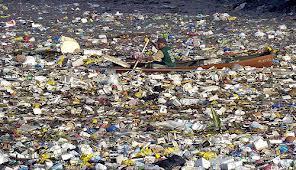We live in a disposable culture. Everything from coffee cups to pens can be used and thrown away once they’re done, no longer do we rely on refillable fountain pens and though you can take your china mug to the office, why bother when there is a constant supply of disposable paper cups? It means less washing up!
But what happens after we’ve used our items and thrown them? We have a general idea of what goes on at home, especially with the tedious sorting of recyclables and garden clippings that must be done to appease the Gods of the local council and refuse management. But what happens to all the things that get thrown away at your office? Well lets go find out.
To be honest what happens to your commercial waste can completely change depending upon where you are in the country. However one fact seems to hold true, if you mix recyclables with non recyclables the entire load then becomes a non recyclable selection and is treated as such, but how its treated can differ greatly…
Kensington and Chelsea
A great example of waste management is the one set up by Kensington and Chelsea borough council. Though they state that recyclables mixed with regular rubbish will be non retrievable they go on to say that regular waste will be taken to an energy from waste plant. They not only reduce the emissions of carrying the waste by transporting it by boat down the Thames but they also make enough energy from the waste to power at least three boroughs in London, you can find out more here- http://www.rbkc.gov.uk/pdf/Article_October%202011_What%20happens%20to%20Waste.pdf.
Coventry
The city of Coventry runs a similar scheme with the aim of becoming a zero landfill council they are intent on recycling as much waste as possible, through either sorting or specially designated recycling bins. You can see the list of recyclable items they aim to help with here – http://www.coventry.gov.uk/info/10076/commercial_waste-information_and_advice/1079/waste_solutions – this site also tells you that they compact the waste in their trucks and operate a similar waste to energy incineration programme as Kensington and Chelsea.
Bolton
Bolton also offers the scheme of waste to energy – http://www.bolton.gov.uk/website/Documents/Recycle%20your%20commercial%20waste.pdf – with the aim of reducing the cost to business owners by only charging them for the rental of the bins and not the collections and being highly aware of the cost to the environment. Bolton states that they aim to help reduce the use of landfill sites which can produce poisonous gasses which affect not only the surrounding area but the local wildlife and inhabitants too.
Stoke On Trent
Stoke, too, follows the trend for incineration but also admits on their site that sometimes landfill sites will be used, but only if the Waste to Energy plant is undergoing planned maintenance – http://www.stoke.gov.uk/ccm/content/environment/rubbish/commercial-waste-container-options.en;jsessionid=aOv36Lxw5Wse.
So while we may think we’re still throwing away too much non recyclable material, it is still being put too good use. Now we just need the manufacturers to play catch up and bring out even more recyclable containers and items!
About the Author :
Vari loves that fact that everything from glass bottles to polishing cloths are recycled these days.








